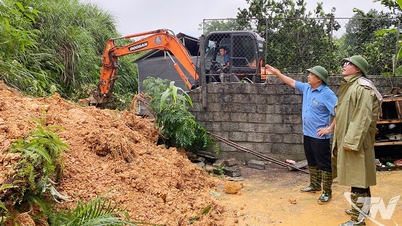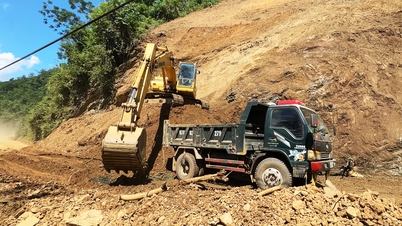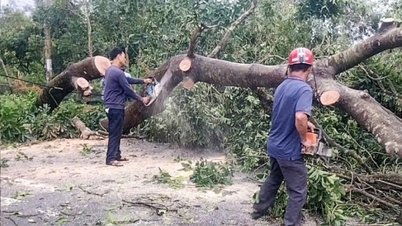Switzerland Part of the Fluchthorn mountain peak in the Silvretta Alps suddenly collapsed on June 11, causing more than 100,000 cubic meters of rock to fall into the valley below.
Part of the Fluchthorn summit collapsed. Photo: Christian Hutter
The landslide occurred after a long period of high temperatures in Switzerland, possibly the result of melting permafrost. Scientists warn that similar events could occur as climate change causes ancient frozen ground to thaw, Live Science reported on June 26.
Riccardo Mizio, a mountain rescuer, said the cross that stood on the summit had disappeared and no one was injured by the falling rocks. The main peak of Fluchthorn lost about 100 meters. The collapse occurred on the western side, in the Futschol valley. The middle peak, at 3,397 meters, is now the highest point of Fluchthorn, meaning the mountain is about 19 meters lower than before.
Most peaks above 2,500 meters in the Alps are covered by a layer of permafrost, which penetrates into the cracks between the solid rocks and helps hold them together. Without this layer of permafrost, the mountainside can become unstable, leading to landslides.
Climate change is having a major impact on the permafrost as rising temperatures cause the ice in the cracks to melt. This is not unusual in the summer, when the upper layer of permafrost briefly melts, but more frequent heatwaves in the Alps are causing the deeper ice to gradually melt during the summer.
As the ground warms, melting permafrost is expected to destabilize more of the Alps' rock massifs, leading to more frequent landslides. "The Fluchthorn summit has probably been frozen for thousands of years. Since slow climate change affects deeper layers of rock, the collapse of the summit is more likely to have been the result of extreme temperatures last summer or autumn," said Jan-Christoph Otto, a geologist at the University of Salzburg.
In the Alps, atmospheric temperatures have risen significantly over the past few decades. According to the Swiss Meteorological Service, temperatures in the Alps are rising by about 0.3 degrees Celsius per decade, about twice as fast as the global average. Based on long-term data collected by sensors on the rock face, the average temperature inside the rock is rising by 1 degree Celsius every 10 years.
While it’s impossible to predict which Alpine peaks or crags will collapse next, experts warn that similar rockfalls will occur as the world warms. Otto says there are hundreds of mountains in the Alps that have permafrost. “Given the continued temperature increase in the Alps, more similar events are likely,” he says.
Thu Thao (According to Live Science )
Source link




![[Photo] President of the Cuban National Assembly visits President Ho Chi Minh's Mausoleum](https://vphoto.vietnam.vn/thumb/1200x675/vietnam/resource/IMAGE/2025/10/1/39f1142310fc4dae9e3de4fcc9ac2ed0)


![[Photo] Hanoi morning of October 1: Prolonged flooding, people wade to work](https://vphoto.vietnam.vn/thumb/1200x675/vietnam/resource/IMAGE/2025/10/1/189be28938e3493fa26b2938efa2059e)




























































































Comment (0)